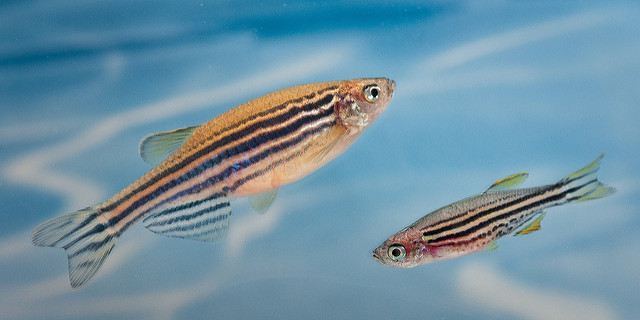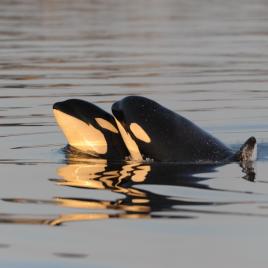
Adult zebrafish behavior can change depending on the level of hypoxia exposed to as an embryo (Image by Thierry Marysael via Flickr)
As a result of climate change, low-oxygen or hypoxic areas have spread to many fish habitats over the past few years. A new study attempts to understand the effect of the exposure to hypoxic conditions during embryo development in zebrafish on their behavior later in life. Researchers found that zebrafish that were exposed to 4 hours of hypoxia as embryos had higher levels of testosterone and exhibited more aggressive social behaviors. Study authors say that low oxygen levels at the embryonic stage could lead to the development of a dominant aggressive phenotype among zebrafish, but it’s not clear that these adaptations are favourable to the species as a whole. This research offers a glimpse of the evolutionary changes at the species level that are already brought about by climate change.
Authors:
Catherine M. Ivy, Cayleih E. Robertson, Nicholas J. Bernier
Corresponding author:
Nicholas Bernier, Department of Integrative Biology, University of Guelph, Email: nbernier@uoguelph.ca, Tel: 1-519-824-4120 x56093
Original paper published in Proceedings of the Royal Society B on January 11, 2017.



